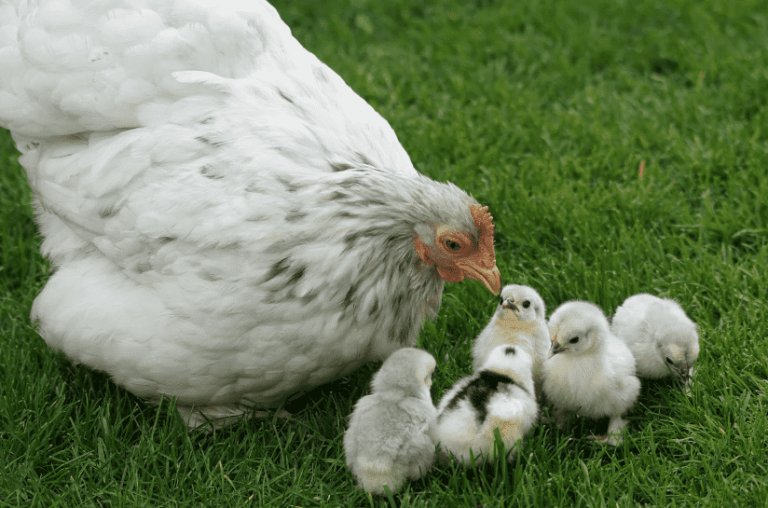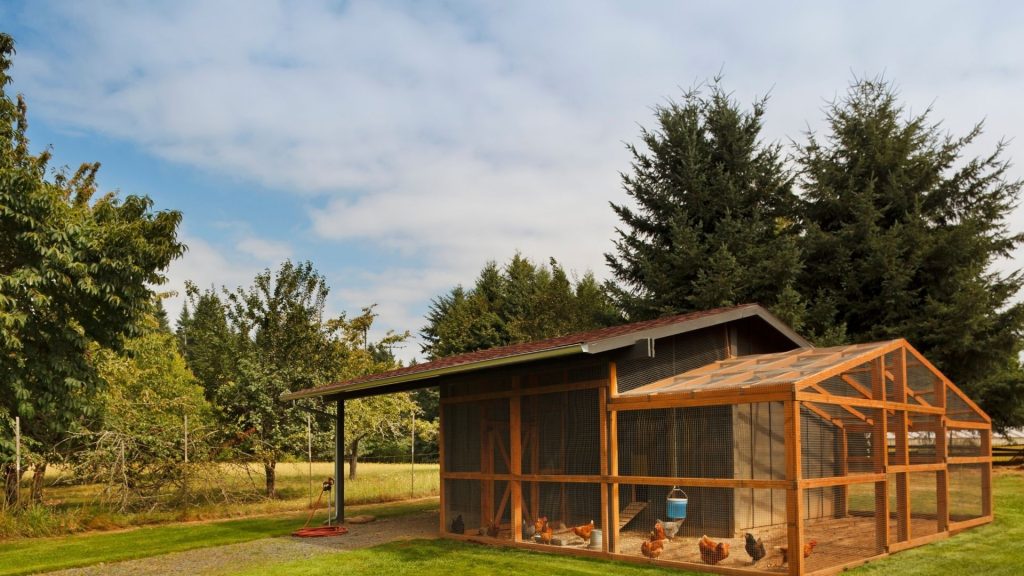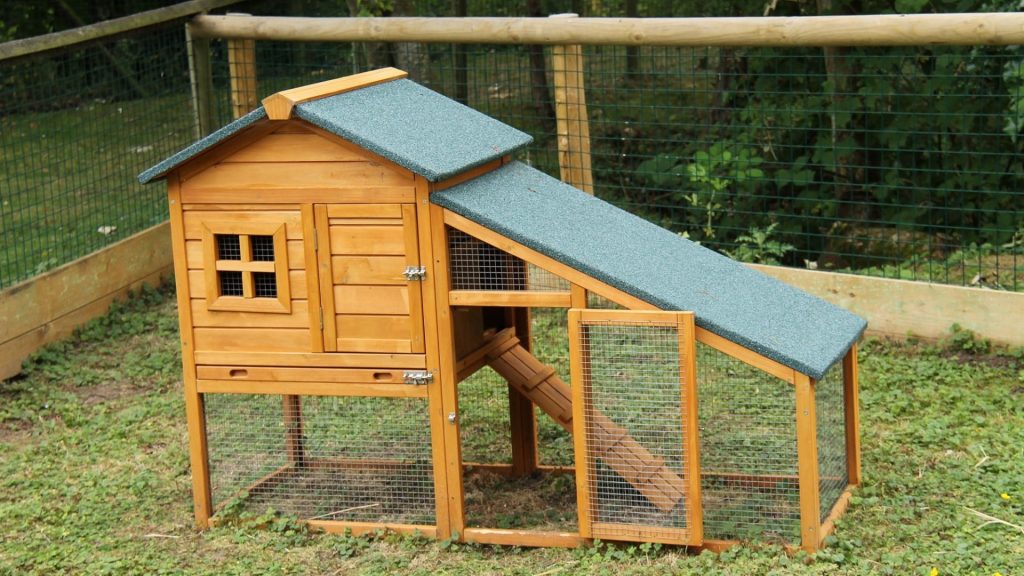Raising baby chicks and dealing with them is full of fun. Moreover, compared to any other animal, raising the hens is easy. Therefore, you don’t need to panic about raising baby chickens in your backyard coop. You can raise the hen flock in your home by following a few simple tips and tricks.
The baby chicks are prone to die at their initial age. So, you need to handle them efficiently and carefully while raising them. Once they become adults, the percentage of mortality rate will decrease, but still, anything can happen. Simply put, you must take care of the chicks while raising them.
After conducting in-depth research, we developed a guideline for you regarding how you can raise your chicks. So, sharply go through the article below:
Tips For Raising Chickens In Your Home
To raise baby chicks in your home, you need to make the perfect preparation for them. It’s more challenging than you think. Ensuring the right food, sufficient water, and appropriate temperature is essential for your chicks. Therefore, before attempting to raise chicks at home, we recommend you go through the following guide:
Where To Get The Chickens
Before raising the baby chicks, you must first buy them. You can get the chickens for your coop in several ways. You can buy the chickens from small farms, hatcheries, or stores. Moreover, everything is becoming more accessible these days.
So, by sitting on the couch in your home, you can get baby chicks by ordering online. And you can ask your neighbors or friends where you can get the chickens. So, there are numerous sources or ways from where you can buy baby chicks for your coop. Two major sources of getting chicks are:
Buying Chicks
The most important job for you is to purchase the chicks. Chickens go through several development stages. Therefore at any stage, you can buy the chicks. And it wholly depends on how soon you want eggs from the chicken. Now we will explain the different development stages of chickens. Just go through it.
- Day-Old Chicks: You can buy day-old chicks from your nearby hatcheries or a small farm. The price of baby chicks is not much, and you can buy them within your budget. Usually, most farms produce chicks once or twice a year. Therefore contact them to know the exact time of their chick production. Otherwise, you will require to wait for six months.
- Ready-to-lay pullets: The 20-week-old chicks are categorized as ready-to-lay pullets. At the 20-day age, the chicks just start laying. However, compared to day-old chicks, these categories of birds are more expensive. But if you buy chickens at this stage, they will lay eggs sooner. Moreover, you don’t need to take care of these chicks much time because they can go coop by themselves. You can get them either from the hatchery or from the farm supplier.
- Mature Laying Hens: Getting mature chickens are pretty challenging. Usually, this type of chicken is only that much available if anyone wants to sell their older hens. But if you ever get the chance to buy this type of bird, you should immediately absorb it. The mature hens ensure that they will produce eggs immediately after buying them.
Hatching Chicks
Hatching the chicken eggs is an excellent option to expand your chicken flock if you already have the hens. But only having a hen is not enough. It would be best to have a rooster in the flock to get fertile eggs.
You will only hatch the eggs successfully if the eggs are productive. Along with the roosters, you also require the broody hen. A broody hen sits on the eggs until they are fully hatched. Following our 21-day hatching guide, you can hatch the eggs perfectly.
If you’re interested in hatching chicken eggs, be sure to read this complete guide. You’ll learn everything you need to know about the process, from choosing the right eggs to incubating and caring for them.
Chickens Raising
Now you have to do the most crucial task: raising the chickens. Raising the baby chicks isn’t tough. But while raising them, you have to do several tasks. Moreover, you must ensure the perfect temperature of nearly 92 degrees Fahrenheit for the chicks. It would be best if you kept the chicks from the floor at 2 inches above. And the temperature should be almost 92 degrees.
Once the chickens are six weeks old, you can reduce the temperature by 5 degrees Fahrenheit. And over time, when the chicks start growing, you should feed grower mash to them instead of the starter feed.
Before Bringing Chicks At Home: Set Up The Brooder
Before the chicks arrive at your home, you must set up the brooder. You have to ensure a cozy and warm space for your chicks. Around the lamp heat’s edge, place the full feeders and Waterer to scatter the bedding and set up the brooder.
On the bedding, we recommend you place a thermometer underneath the lamp. Make sure the light is perfectly heating the area at 95 degrees Fahrenheit. However, the brooder temperature will stabilize within a few hours based on the outdoor temperature. To adjust the brooder temperature, you need to change the lamp’s height.
Check Your Shipment
Once the shipment arrives, your first job is to open the chick’s box and examine them. There is a chance that some chicks may not arrive or some may become dead. If such things happen and a few of the chicks become dead, don’t take stress about it. However, considering the potential losses, the good hatcheries usually send 1-2 extra chicks in the shipment.
Observe The Chicks
After taking the baby chicks out of the box, you need to observe the chicken’s behavior for a while. So, sit back for a few minutes and watch how they behave. You will feel entertained and learn the necessary information by seeing them. After the arrival of chicks, within one or two hours, you should manage the necessary feed and water for them. The baby chicks can soon wander about finding water or feed. So make the arrangement in advance.
On a small piece of cardboard, put some food. If one chick starts tapping the beak and feeding from the cardboard, the other chicks will soon get attracted to it. This technique is entirely reasonable to ensure that your chicks will eat the food. Another essential factor to consider is temperature. Please pay attention to it.
Make sure the temperature is perfect, and the chicks are milling happily under the lamp. The chicks roaming around the lamp, eating and drinking happily, means the temperature is perfect. On the contrary, the chicks are avoiding the reddish light means the temperature is likely too hot.
Keep The Bedding Clean
For spilled water and food, you need to inspect the bedding of baby chicks daily. If the bedding becomes wet, remove them as soon as possible. The wet bedding can cause disease to your chicks. Therefore you need to remove them once the bed becomes wet.
Moreover, it would be best to put down fresh bedding when it gets saturated with feces. Furthermore, baby chicks often spread the feeders and water on the bed, making it dirty. Therefore, when you spot such a condition, you must clean them quickly.
If you want to keep your chicken bedding clean and want to know when to change chicken bedding, read the following articles.
Move The Chicks To The Coop
So, finally, after a few days of observation, now it’s time to move the chicks to the coop. However, before proceeding the chicks to their permanent residence or cage, you must acclimate them slowly to the outdoor temperature. Before moving chicks to the cage, you need to follow the basic steps below:
- Lower the brooder temperature gradually by 5 degrees Fahrenheit. And make sure the outdoor temperature and brooder temperature are the same.
- Once the chicks become 2-3 weeks old, you need to give the baby chickens outside time. For a short period, you can bring the chicks outside under the sun.
- When the chicks become 4-5 weeks old, you should permanently move them to their main coop. Keep the chicks close in the coop for one or two days after moving them.
Tips For Maintaining A Perfect Chicken Coop
First, you need to have a chicken coop to raise chickens. You can build the coop yourself or buy the readymade one from the market. To raise a healthy chicken flock, you must maintain a perfect chicken coop. Here we will help you by providing tips on maintaining a coop. So let’s start:
- As we already mentioned that you could buy chicken of any age. But one important thing is don’t keep the mixed ages chicken in a flock. Mixed-age picking can result in uneven growth and overcrowding.
Furthermore, your chicks require lots of space. So, picking birds of the same age will ensure enough space and freedom for the chickens. And you will also experience that all the chicks in the flock are growing together.
- If you pick the day-old or young chicks, ensure they are always close to the food and water. On the coop’s floor, you can lay the pine shavings in a 4-inch layer. Then over the pine shavings, put the newspaper in several layers. Now scatter the bird’s feed on the newspaper. And also arrange water for them.
- Every day remove one layer of paper to keep the coop clean. Hopefully, the chicks will learn to feed by the time the newspaper’s last layer is gone.
- Under the red bulb, the injury doesn’t show. Therefore we recommend you use the red bulb always. The bloody spot under the white light attracts pecking immediately. Thus, the birds will efficiently and cheerfully peck each other to death under the white light.
- Change the water daily so the chicks can use and drink fresh and clean water. For every 100 chicks, you should have a one-gallon size Waterer. Moreover, to avoid the chick’s crowd, you can also use the two or three Waterer.
- If you pick the pullets to raise in your coop, you need one Waterer every 6-8 hens. Accommodating huge chicks in a single Waterer is challenging enough.
Frequently Asked Questions
How do you keep a baby chicken alive?
To keep the baby chicks alive and raise them strongly, you must ensure three things: feed, water, and warm. From day 1, provide the complete starter feed and fresh water until day 18.
How do you raise chickens for beginners?
The beginners raising the chicken have to select the breed type first that fits them. Then fix how many birds you want to raise. Then research the reputable chick source for buying hens, prepare your brooder, and focus on sanitation. And finally, to raise the chicks, you need to make a long-term nutrition plan.
How do you feed a baby chicken?
Chicks eat seeds, fruit, pulses, grains, vegetable scraps, and many more. Even though chicks eat different things, not all are good for them. So before feeding your baby chicken, take an idea about what food you should give to them.
Final Thoughts
We already explained the details way of how to raise baby chickens. Following our suggested approaches, you can raise the chicks in your backyard coop. Make sure you take care of your chicken and ensure the appropriate temperature. However, you can comment in the comment section to learn more about the baby chicken.
Raising Chickens 101: A Beginner’s Guide
Get started in chicken raising with our expert-approved guide. From building a coop to hatching eggs, you’ll learn all the essential information you need to know. Topics include selecting breeds, caring for chicks, increasing egg production, and more. We also cover chicken feeds, behavior, disease prevention, and essential vitamins and minerals. Follow this guide for a successful and fulfilling experience.
Want to learn more about chicken raising? Check out our beginner’s guide below for even more tips and information:
- Building a Chicken Coop
- Selecting the Right Backyard Chicken Breeds
- Incubating and Hatching Chicken Eggs
- Caring for Pullets
- Increasing Egg Production
- Types of Chicken Feeds
- Choosing the Best Chicken Feed
- Understanding Chicken Behavior
- Recognizing and Treating Chicken Diseases
- Providing Essential Vitamins and Minerals



